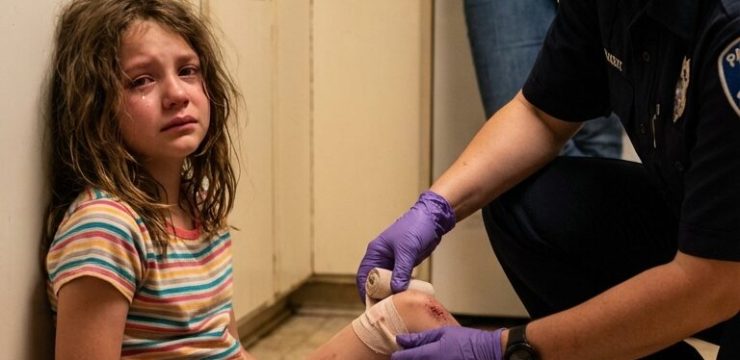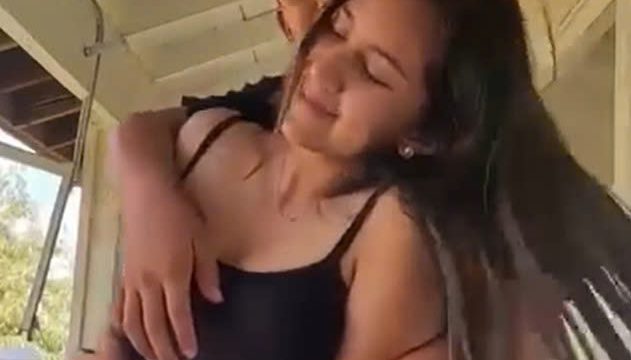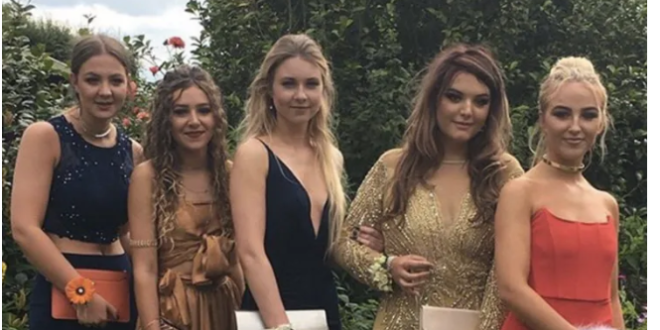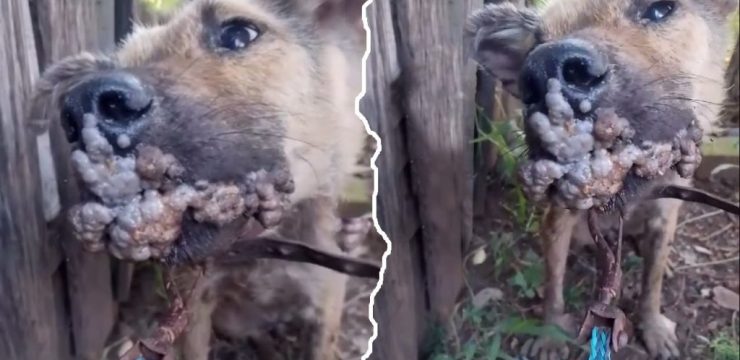Officer José López had faced countless emergencies during his twelve years on the force, but something about the dispatcher’s voice that night made his pulse quicken. There was tension in her tone, a tremor that hinted this was not a routine call. “Eight-year-old female, alone in residence,” she reported. “Caller states, ‘It was my dad and his friend… please help.’” The words echoed in López’s mind as he steered his patrol car down Maple Street, the red and blue lights washing over neat lawns and quiet porches. It was a modest neighborhood — the kind where folks waved to one another, where porch lights glowed with the illusion of safety. But López had long learned that even the calmest streets could hide the darkest secrets.
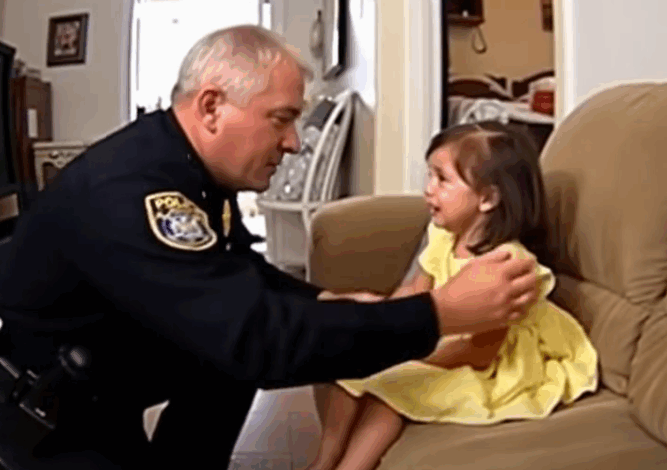
He parked and approached the small, single-story home. The yard was silent, save for the distant hum of crickets. He knocked softly. For a moment, nothing. Then, faint footsteps approached, and the door creaked open. A little girl stood before him — thin, pale, and trembling, her eyes red from crying. “Are you the police?” she whispered. López knelt to meet her gaze, his voice gentle. “Yes, sweetheart. You must be Liliana. I’m Officer López. You did the right thing calling for help.” Her lip quivered as she pressed a hand to her stomach. “My tummy really hurts.” “Okay,” he said, giving her a reassuring smile. “We’re going to help you and your mom. May I come inside?” She nodded and stepped aside.
The living room was dimly lit by the flickering glow of an old cartoon playing on the TV. The colors danced across the walls, casting long shadows. The furniture was tidy but worn. López noticed the faint smell of bleach — and underneath it, something metallic, sharp, and wrong. His instincts told him this home held more than exhaustion and sadness. “Liliana,” he asked softly, “is your mom home?” She pointed down a narrow hallway. As he followed, his hand hovered near his holster — not from fear, but habit.
Inside the small bedroom, a woman lay motionless on the bed. Her skin was pale, her breathing shallow. A half-empty bottle of pills sat on the nightstand beside a glass of cloudy water. “Ma’am?” López called out gently. No response. He pressed two fingers to her neck and felt a weak but steady pulse. Relief washed through him. Stepping into the hall, he asked, “Liliana, has your mom been sick for long?” The girl nodded. “She doesn’t get up much anymore. I make her soup sometimes.” Her voice wavered. “She used to smile more.”
López took a deep breath. “What about your dad, honey? When was the last time you saw him?” Her eyes filled with tears. “He left with his friend. They told me not to tell anyone what they were doing.” The officer’s stomach tightened. He crouched beside her again. “You did the bravest thing you could by calling 911,” he said. “You probably saved your mom’s life tonight.” She didn’t answer, just stared up at him — the wide, haunted eyes of a child who had seen far too much.
Within minutes, paramedics arrived. The quiet home filled with urgent voices, radios, and the sound of medical gear being unpacked. One paramedic checked Liliana, frowning at her distended abdomen. “She needs to go in, too,” he told López. “Possible poisoning.” The words hit hard. As they lifted her onto a stretcher, Liliana reached out, clutching López’s hand. “Don’t leave me,” she pleaded. “I’ll be right behind you,” he promised, squeezing her small fingers.
When the ambulance pulled away, López stood in the cool night air, staring at the little house that looked so ordinary from the outside. He felt anger, sadness, and something else — the quiet determination that came from knowing a life had been spared, if only just in time.
Over the next few days, the truth came out, and it was worse than anyone imagined. Investigators discovered that Liliana’s father and his friend had been using the home as a makeshift lab for illegal substances. Toxic chemicals were stored in unmarked containers, leaking into the family’s food and water. Liliana’s constant stomach pain had been caused by slow poisoning, and her mother’s declining health was the result of exposure over time. When the men realized authorities were closing in, they fled — leaving the little girl alone with her unconscious mother. Her 911 call had been the act of courage that saved them both.
The story spread quickly through town. People were heartbroken yet inspired — a little girl, abandoned and afraid, who had found the strength to ask for help. Donations began pouring in: clothes, toys, food, even money to help cover medical bills. Social workers worked tirelessly to find Liliana a safe place to stay while her mother recovered.
A few days later, López visited the hospital. Liliana was propped up in bed, a cartoon flickering softly on the TV beside her. She was pale but alert. When she saw him, her face lit up. “You came back,” she said. “I told you I would,” López replied, handing her a small stuffed dog. “A friend at the precinct wanted you to have this.” She hugged it tightly. “Did they catch my dad?” she asked quietly. López hesitated, then said, “They’re looking for him, but the most important thing is that you and your mom are safe now.” Her gaze drifted toward the window. “I just want her to wake up.” “She’s getting stronger every day,” he assured her.
Before leaving, López paused at the door. “Liliana, what you did took incredible courage. Most grown-ups wouldn’t have been that brave.” She shrugged slightly. “I didn’t want her to die.” His voice softened. “You made sure she didn’t. That makes you a hero.”
Weeks later, something extraordinary happened — the town came together like never before. Neighbors cooked hot meals, local churches raised funds, and a carpenter volunteered to fix the family’s damaged home once the investigation ended. After weeks of treatment, Liliana’s mother finally woke up. Their reunion was simple but deeply moving — just two hands finding each other, silent tears flowing down both faces.
When the case officially closed, López printed the transcript of Liliana’s 911 call and pinned it to his desk. The first line — “It was my dad and his friend… please help” — served as a daily reminder of why he’d chosen this career: to be there when someone’s last whisper of hope reached out for help.
Months later, at a community event honoring local heroes, Liliana and her mother were special guests. The little girl wore a bright yellow dress and carried the same stuffed dog he’d given her. When she spotted López, she ran to him and wrapped her arms around his waist. “Guess what?” she said excitedly. “I’m starting school again next week!” “That’s wonderful,” he said, kneeling to her level. “Are you ready?” She grinned. “Mom says I’m brave enough for anything.” He smiled. “She’s right.”
As he watched her rejoin her mother, laughing freely for the first time, López felt a rare peace. That night on Maple Street — the trembling voice, the open door, the courage of one small child — had reminded him that hope doesn’t always come with sirens or shouts. Sometimes, it arrives quietly, in the voice of an eight-year-old girl whispering for help, strong enough to change two lives forever.

